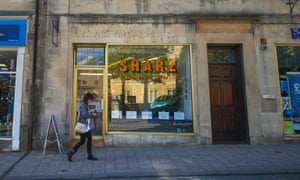The Comfrey Project in Gateshead provides refugees and asylum seekers with a safe, welcoming environment, promoting personal wellbeing through a sense of place and belonging. This year participants at the project have planted a ‘Foraging Hedgerow’ and grown wild flowers on an unused area of their community garden, funded by Grow Wild.
Sultan, 48, from Pakistan has been coming to the project for four years, he shows me around.

“This here,” he says, gesturing to a patch of wild flowers in front of the newly planted hedgerow, “was a jungle! We cleared it all.”
“I like the digging for exercise,” he says, “I dig for two or three hours, hard work. It’s meaning I am losing weight. I’m in much better shape now in my body,” he laughs, flashing a smile.
“I like the new flowers. Slowly slowly they grow up and I am happy.”
Whilst the centre is facilitated by project workers, the participants are fully involved in the construction, maintenance, growing and running of the garden, as well as cooking at the centre and of course socialising.

“The Comfrey Project helps me and I can help the Comfrey Project,” Sultan says proudly, “I look after the garden and cook the food. Everybody is always asking me ‘Sultan, please cook again’. They like my vegetable curry.
“Everybody respects me here and I respect them. It’s very nice,” he says.
Being respected and feeling useful may seem like simple things, but to Sultan they are highly valued.
“A lot of the refugees and asylum seekers we work with here are highly skilled and were doctors and professionals back home,” says Craig Wilson, from the Comfrey Project, “they have a lot to offer. Some come from agricultural backgrounds and can bring those skills directly to the garden here.”
Sultan shows me the polytunnel, where there’s a vast array of plants growing. Sourced from all over the world, including Angola. They are all thriving here, on this community garden in the north of England. “If that plant can survive winter here, then so can I,” says one of the other participants.
“Gardening crosses all boundaries of race, religion and gender,” Yvonne Hartnett, from the Comfrey Project says, “And all abilities too. Some people enjoy digging, whilst others sow seeds. We all learn from each other.”

“I have improved my English a lot since I have been coming here,” Sultan tells me, “In the beginning I was saying ‘what is this gar-den-ing?’ But now I understand at least 75% of what people say to me.
“People here speak many languages, including Urdu, but I am asking them ‘please speak English. I like English. My life here is much safer.”
Sultan’s daughter Dil, 16, comes to the garden sometimes too, but he tells me her focus is elsewhere, “She is in the cadets. She wants to be in the army or a police officer. She is always watching them on TV. I say if she is happy, I am happy.”
The Comfrey Project plans to keep expanding the garden with new and exciting activities for both refugees and asylum seekers and local people too.
“Gateshead is a tough place to live in the recession,” Craig tells me, “But the people here are warm and hardworking. We’ve got a few people who live locally who come and help and enjoy the garden, as well as disabled adults, young offenders and ex-service people.
“The wild flowers have given us all an opportunity to engage with the land in an interesting way, because they’ve got their own life – every day it changes. They’re the first thing you see as you come in and that really lifts people’s spirits.”
As for Sultan’s hopes for the future… “I would like it for everybody to respect everybody,” he tells me, “When I come here it’s like family. Yvonne and Sanja make me a cup of tea and the bread with jam. It’s like my sister, my family. I want to keep helping the Comfrey Project.”


To learn more, please visit: Grow Wild





